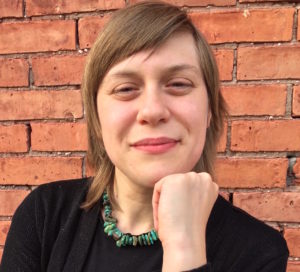Everyone is familiar with the curse “May you live in interesting times,” and 2020 has certainly been the most interesting year in recent memory.
There can be no question that we are living through historic events: a global pandemic, a wave of social justice protests, a perilous economy and an unprecedented election cycle.
In addition to the questions that keep all of us up at night, there are some that haunt historians and archivists in particular: How will this year be remembered in the future? What challenges do we face in documenting our experiences of the present?
COVID-19 has brought complications to the mission, methods and daily logistics of every field, and archives are no exception.
I have encountered three general challenges in my field brought on by this pandemic, but I believe that each one also comes with an opportunity:
The first is COVID-19’s impact on our regular, ongoing work of archiving and preserving history. One of the best parts of my job is getting to meet with people in their homes to discuss their history; I look through their records, objects and photographs. Visiting people at home has been difficult and often impossible this year, but there is a silver lining. As the pandemic forces people to stay at home, it also inspires some to tackle major organizational projects, leading many to reach out for phone and Zoom consultations. This inspired me to lead a two-part Zoom workshop in October on archiving your personal and family history, which is still viewable for free on the Filson Historical Society’s YouTube channel.
Similarly, archival institutions are using this time to catch up on our own cataloging backlogs. In June, we safely transferred over 50 linear feet of Jewish Community of Louisville records to the Filson for processing and preservation, a project we have already dug into and focused on.
The second challenge concerns documenting the continuing experience of the pandemic itself. History is more than raw information about dates and events. It involves interpretations, experiences and narratives. There is no singular experience of the pandemic; it has affected people in many ways. For some, this has been a time of loneliness and isolation at home. Others are dealing with the economic catastrophe of losing their homes. Some are mourning lost opportunities; still others, lost lives.
The COVID-19 experiences vary dramatically, but all are part of this moment. Therefore, our efforts to document and remember them must be expansive and varied. This challenge also presents opportunities to remember that our own experiences are not universal and to expand and deepen how we think about history. We are primed to think of history as singular events (the assassination of President Kennedy, the fall of the Twin Towers, etc.). But COVID-19 has not been a singular catastrophic moment. It is a complex, protracted event that has unfolded over months, affecting health, economics, politics and culture. The total nature of COVID-19 shows us just how vulnerable and interconnected we are, in predictable ways and ways we might not have understood. This increased awareness of context and contingency presents a powerful and humbling learning experience.
Finally – and this is difficult to admit – living through a historic present is also forcing archivists to confront how woefully unprepared we are to preserve our digital existence. While a small number of exceptionally well-resourced repositories have been able to invest in the professional and technological infrastructure needed to capture and preserve digital information for the long term, the rest of us are running to catch up and make do. As a culture, we have become so conditioned to the ease and omnipresence of online information that we forget how fragile and fleeting it truly is. Most of it is owned by for-profit companies and is destined to disappear as market forces dictate.
Will our renewed collective appreciation for what it means to experience history inspire us to invest in new frontiers of historic preservation? I hope so because what we have gone through this year will surely be of great interest to those in the future.
(Abby Glogower is the curator of Jewish collections at The Filson Historical Society.)



